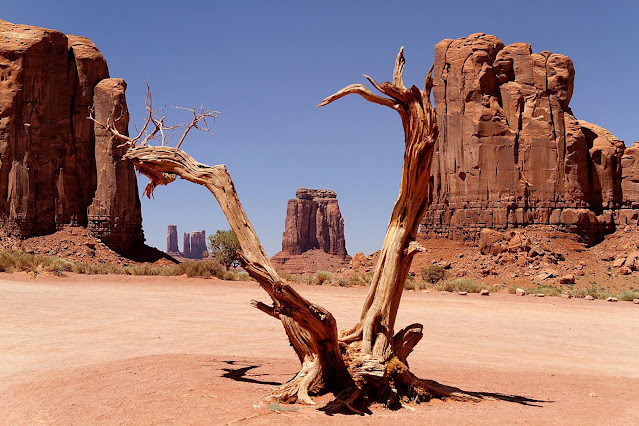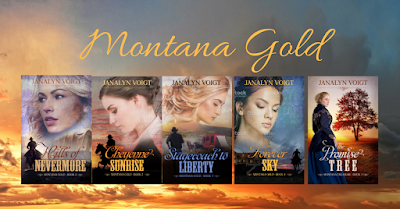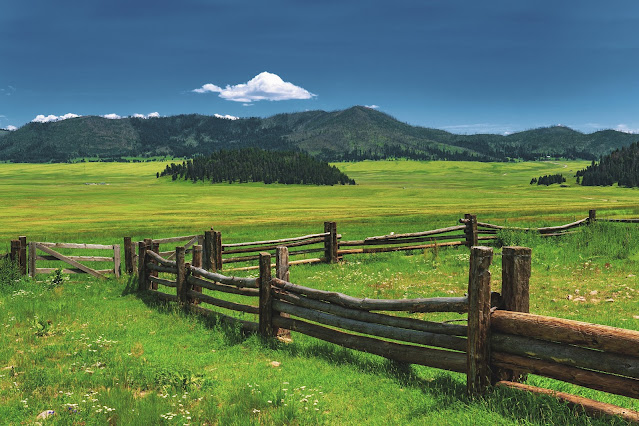Hundreds of Miles by Horseback
A circuit preacher traveled on horseback, sometimes for hundreds of miles across rugged terrain, to cover an assigned “circuit.” He moved from one settlement or homestead to another to offer religious services, sermons, and other pastoral care to settlers with little access to clergy. He often preached in unusual locations, including makeshift buildings, barns, or even open fields.The preacher returned to each settlement on a regular schedule that provided a sense of stability to settlers. Amid the violence, sickness, and loneliness they endured, they could look forward to his faithful arrival.
Author’s Note: While researching Hills of Nevermore, the first book in the Montana Gold series, one circuit preacher in particular stood out. I was charmed to read how Brother Van persuaded a saloon owner to close the bar and hold church for an hour one Sunday afternoon. He reportedly had the miners singing hymns. I decided as a tribute to base the character of Shane Hayes, the hero of Hills of Nevermore, on Brother Van. One of the liveliest scenes in the book is when Shane attempts to hold church in a saloon.
Brother Van often faced perilous weather, health struggles, and the constant threat of danger on the frontier. Despite these challenges, his determination never wavered. He was beloved for his deep compassion, infectious optimism, and tireless work ethic. Brother Van’s ability to adapt his sermons to the needs of his audience made him an extraordinary preacher able to connect with people from all walks of life. The gift of speaking directly to the hearts of his listeners made him much beloved. In a world where the West was often defined by its tough, gritty nature, Brother Van’s compassion and faith brought hope to many.
The church, therefore, became a critical institution in these frontier towns, offering not only spiritual guidance but also practical assistance. Circuit preachers were often involved in social work, helping to establish schools, orphanages, and hospitals in the harshest of conditions. They served as counselors to the weary, peacemakers in times of conflict, and sometimes even as the only voice of reason in the midst of the violent struggles that defined life in the Wild West.
The presence of these ministers in the West also had a significant impact on the establishment of communities. It’s no coincidence that towns often formed around churches, which became hubs for settlers to gather, share news, and provide support to one another. These gatherings were not only for worship but also for socializing and the building of relationships. In this sense, circuit preachers were pivotal in the formation of the social fabric of the Wild West.
Circuit preachers lived hard lives. The demands of traveling hundreds of miles on horseback in often inclement weather and through dangerous terrain were daunting. Preachers faced physical exhaustion, health issues, and the constant threat of isolation. They relied on the hospitality of settlers to offer them food, shelter, and sometimes safety.
In many cases, they were forced to live off the land, surviving on minimal resources. It is a testament to their dedication that these preachers continued to serve—sometimes for years. Many never married and died young. Nearly half of the 737 circuit preachers the Methodist Church sent out prior to 1847 died before age thirty,
These humble servants are unsung heroes of the West. Many of their names are lost to time but their influence remains an indelible part of American history.
The Incomparable Brother Van
William Wesley Van Orsdel, a Methodist minister, stands out as one of the most notable circuit preachers of the American West. Van Orsdel traveled west as a circuit preacher in the 1850s. Brother Van, as the settlers affectionately dubbed him, rode from one tiny, isolated community to another, preaching the gospel in homes, schoolhouses, and even the open air. His circuit took him enormous distances, through remote areas of what is now Montana, Wyoming, Colorado, and Nebraska. Needless to say, this tested his physical stamina, emotional endurance, and spiritual resilience.Brother Van often faced perilous weather, health struggles, and the constant threat of danger on the frontier. Despite these challenges, his determination never wavered. He was beloved for his deep compassion, infectious optimism, and tireless work ethic. Brother Van’s ability to adapt his sermons to the needs of his audience made him an extraordinary preacher able to connect with people from all walks of life. The gift of speaking directly to the hearts of his listeners made him much beloved. In a world where the West was often defined by its tough, gritty nature, Brother Van’s compassion and faith brought hope to many.
The Importance of Circuit Preachers in the West
Circuit preachers like Brother Van were often the only ones who could offer a semblance of stability to the frontier’s isolated communities. The West was full of people seeking new beginnings — pioneers who had left behind their homes in search of opportunity. Many settlers found themselves far from civilization, with few, if any, resources to draw upon in times of crisis.The church, therefore, became a critical institution in these frontier towns, offering not only spiritual guidance but also practical assistance. Circuit preachers were often involved in social work, helping to establish schools, orphanages, and hospitals in the harshest of conditions. They served as counselors to the weary, peacemakers in times of conflict, and sometimes even as the only voice of reason in the midst of the violent struggles that defined life in the Wild West.
The presence of these ministers in the West also had a significant impact on the establishment of communities. It’s no coincidence that towns often formed around churches, which became hubs for settlers to gather, share news, and provide support to one another. These gatherings were not only for worship but also for socializing and the building of relationships. In this sense, circuit preachers were pivotal in the formation of the social fabric of the Wild West.
The Challenges of the Circuit Preacher
 |
| The Circuit Preacher by Alfred Waud. |
Circuit preachers lived hard lives. The demands of traveling hundreds of miles on horseback in often inclement weather and through dangerous terrain were daunting. Preachers faced physical exhaustion, health issues, and the constant threat of isolation. They relied on the hospitality of settlers to offer them food, shelter, and sometimes safety.
In many cases, they were forced to live off the land, surviving on minimal resources. It is a testament to their dedication that these preachers continued to serve—sometimes for years. Many never married and died young. Nearly half of the 737 circuit preachers the Methodist Church sent out prior to 1847 died before age thirty,
The Legacy of the Circuit Preacher
Circuit preachers of the Wild West brought hope and help to settlers of an unforgiving land. They built communities, brought solace in times of hardship, and provided constancy to offset the uncertainties of frontier life. Preachers like Brother Van left an indelible mark on history, reminding us that even in the wildest places, faith can shine its light.These humble servants are unsung heroes of the West. Many of their names are lost to time but their influence remains an indelible part of American history.
About the Author
The Montana Gold western historical romance series follows the lives and loves of a family of Irish immigrants surviving in the Wild West. Read these stories to reaffirm your faith in the power of God's love. Learn More>























































